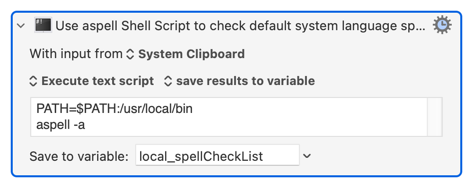Hi @cdthomer, this macro is super cool. Thank you so much for sharing.
One note, I had to modify the Execute a Shell Script action:

PATH=$PATH:/usr/local/bin
aspell -a
This has to do with my installation of HomeBrew. I suspect that other users might encounter the same issue. Note that this change will not effect those that don't need it.
Thanks again!